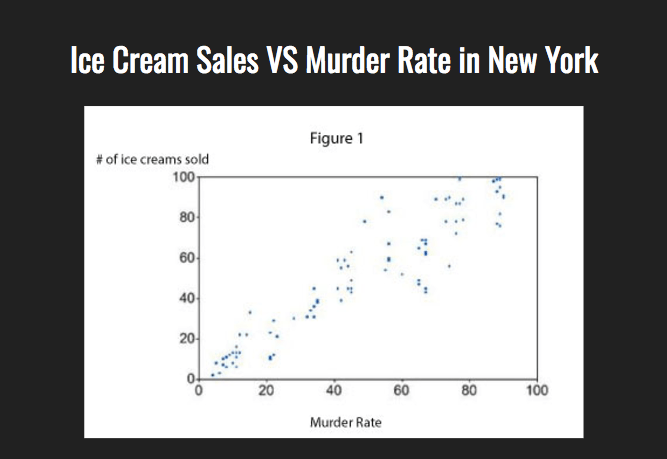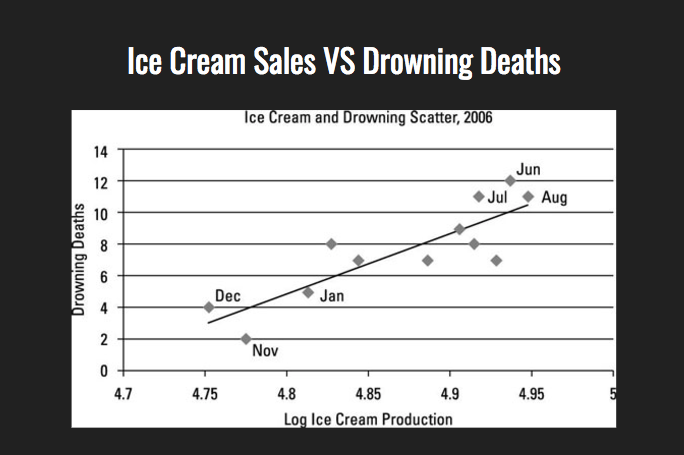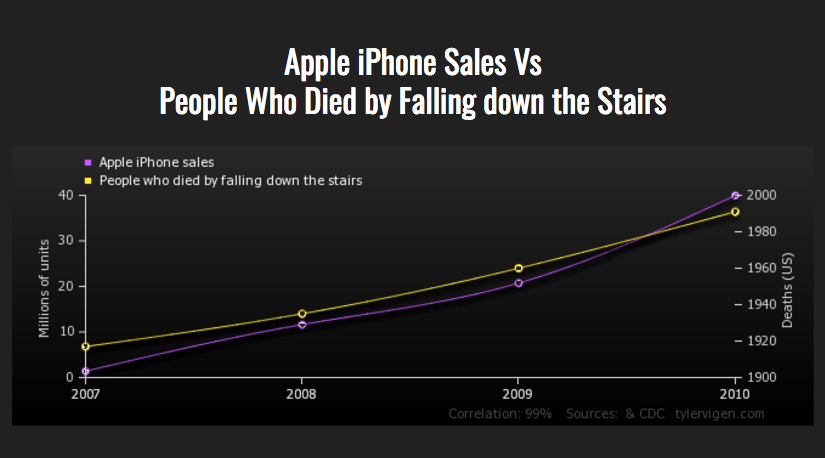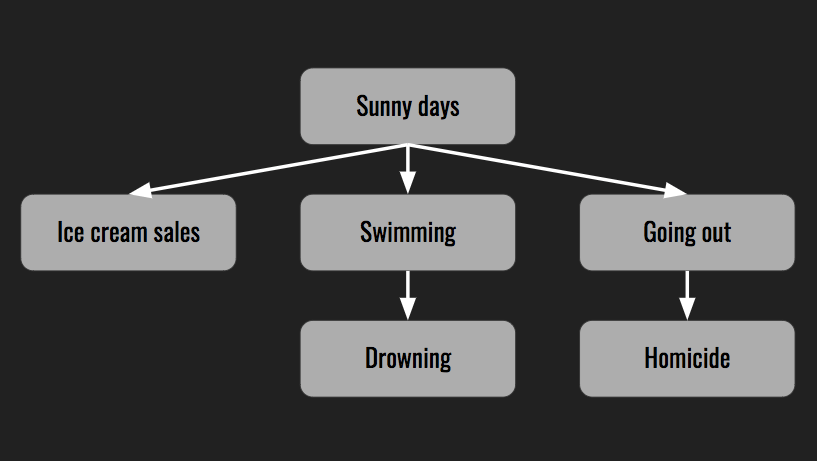In a study [1] done in 2009, it had been speculated that homicide rates were higher when ice cream sales were on the rise. In 2006, a similar study found that the rate of death by drowning was also higher when ice cream sales were hitting their peak. What gives?
Does our consumption of ice cream directly correlate with the rate of death? As we still have one hot month of summer left, I question our safety in light of this disturbing evidence.
Surely if death rates are on the rise when ice cream sales are at their peak, there has to be a connection. Should we ban ice cream at once? Or perhaps there is a different connection between the two that we aren’t seeing.
Correlation isn’t the same as causality
When two unrelated items are tied together, they are either bound by correlation, or by causality. In most cases, many correlations are just coincidences. But just because one factor seems like it influences another, it doesn’t mean that it actually does.
Correlation means X and Y change together
In the case of correlation, it just may be a coincidence. Just because you were able to identify a connection, it doesn’t mean that the connection is actually there. For example, whenever Apple sales increase, like in the case of the release of a new phone, the rate of death by falling down the stairs also rises.
Obviously this isn’t a direct connection. The sales people or the phone themselves are not actually pushing people down the stairs. But because Apple advocates get riled up into a frenzy every time a new phone is released, they trample each other to get their phone. Death by stairs is an outcome of the sale, but the sale does not cause the death.
Causality means X makes Y happen
In this case the initial factor will indeed create an outcome. For instance, say there was a major leak in a pipe line, dumping millions of gallons of oil into the surrounding waterways. Not only will the environmental repercussions be vast, but the price of oil will go up due to a sudden drop in supply. The oil spill directly caused the price of oil to increase.
Consider underlying factors before drawing a connection
In some cases, seemingly unrelated factors could actually be related on some level. In the event of homicide rates increasing alongside ice cream sales, the connection is the weather. On a nice sunny day, when many people are out enjoying themselves and cooling down with a bit of ice cream, predators are on the prowl. When it’s sunny, more people are outside, so there is a wider selection of victims.
There is no causal relationship between the ice cream itself and the rate of homicide, but the sunny weather brings the two factors together.
Don’t draw connections too hastily.
After finding a correlation, don’t be so quick to draw a conclusion. The correlation is just the first step. First, consider the underlying factors at hand that could be causing the outcome. Then, you can start drawing your conclusions and testing the water to see if it holds truth.
Have you ever had a “lucky” pair of pants, pen, or some other item that you thought improved your luck? Chances are you did excel with the aid of your lucky charm, but it didn’t actually give you luck. Your boost of confidence and increased focus is what actually brought you success.
Or let’s say that your boyfriend always seems extra happy on the days that he works with a certain female coworker. You try not to be jealous, but the connection is clearly there. So finally you bring it up, accusing him of having an emotional affair with his coworker. Little did you know that his coworkers husband would regularly bring in their kid, and it reminded him of how he’d like to have a family with you one day. So yes, he does seem happier on the days he works with her, but not for the reasons you initially thought.
Just be considerate when drawing conclusions. You don’t want to be too quick to jump to the wrong one and make a connection where there isn’t one. Consider all of the factors before making a decision.
















































